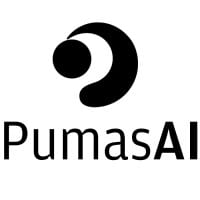Today, a brief rundown of news involving AstraZeneca and Novo Nordisk, as well as updates from Novavax, Tvardi Therapeutics and Denali Therapeutics that you may have missed.
AstraZeneca inked the pharmaceutical industry's second recent U.S. drug pricing pact with the Trump Administration, agreeing on Friday to a deal to sell its drugs to Medicaid at a discount and participate in a new government website allowing patients to buy medications at a lower cash price. The deal also delays by three years any tariffs on AstraZeneca drugs imposed by the administration's ongoing "Section 232" probe. The agreement follows a similar White House deal with Pfizer and, like that agreement, doesn’t affect those on commercial insurance or who won’t pay out of pocket. — Ben Fidler
An Indiana manufacturing plant owned by Novo Nordisk received an "official action indicated" letter from the Food and Drug Administration, rendering the facility out of compliance and impacting multiple biotechnology companies using the plant to produce drugs. The FDA has already rejected or delayed approvals of drugs from Scholar Rock and Regeneron Pharmaceuticals due to issues at the facility, and the latest announcement "adds to [the] uncertainty," wrote Leerink Partners analyst Mani Foroohar. Regeneron is awaiting decisions on a few label expansions for a high-dose form of Eylea, while Scholar Rock has requested a meeting to discuss the next steps towards a submission for its spinal muscular atrophy treatment. It "seems unlikely" that Regeneron's deadlines will be met, wrote RBC Capital Markets' Brian Abrahams. — Ben Fidler
In other Novo news, the Danish newspaper Børsen over the weekend reported that the company is shuttering its cell therapy division as part of a larger reorganization under new CEO Maziar Mike Doustdar. With that move, the company plans to lay off 250 employees and discontinue a high-profile project aimed at effectively curing Type 1 diabetes. According to Fierce Biotech, a Novo spokesperson said the company is “in the process of identifying partners with the right capabilities and manufacturing capacity to further develop our innovations.” — Jacob Bell
One of Novavax’s largest stockholders is pushing for the struggling vaccine developer to sell itself. Shah Capital, which owns 7.2% of Novavax’s stock, said in a letter to the company’s board Monday that a series of missteps have led to “persistent underperformance” and the “continued destruction of shareholder value.” The firm is calling for an “immediate formal strategic review” and sale, as Novavax’s assets would have “far greater upside potential in the hands of a large capable pharma entity.” Novavax shares have lost nearly all of their value since peaking at nearly $300 apiece during the pandemic. — Ben Fidler
Shares of Tvardi Therapeutics fell more than 80% Monday after the Texas-based company, whose research focuses on fibrosis, disclosed negative results from a study testing its most advanced drug. The mid-stage study enrolled patients with “IPF,” a progressive, life-threatening disease that scars the lungs, and pitted a placebo against Tvardi’s drug, either alone or in combination with an approved medication known as Ofev. According to Tvardi, preliminary data show its drug did not meet the goals of the experiment. CEO Imran Alibhai said in a statement that the “limited data set, high variability within treatment arms, and unexpected performance of the placebo arm” make drawing definitive conclusions about why the trial failed difficult. — Jacob Bell
The FDA may take a few extra months to issue an approval verdict on a rare disease therapy developed by Denali Therapeutics. The therapy is designed to deliver key enzymes to the brains of people with Hunter syndrome, a genetic disorder in which a buildup of certain sugar molecules causes organ damage. In a statement, Denali explained that, per a request from the FDA, it had filed more clinical pharmacology information about its medicine. The agency then classified that submission as a “major amendment,” which extends the review process by three months — in this case, from Jan. 5 to April 5. CEO Ryan Watts said his company continues to prepare for the therapy’s potential approval and commercial launch. — Jacob Bell















